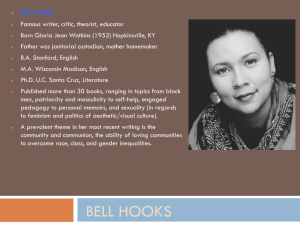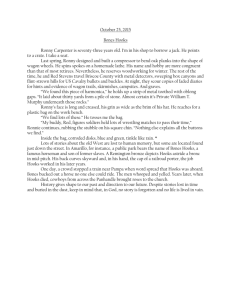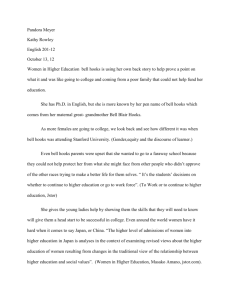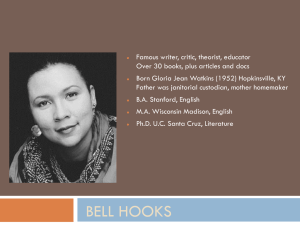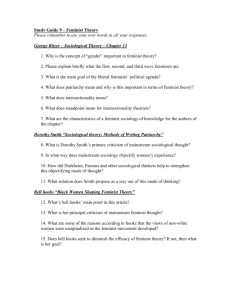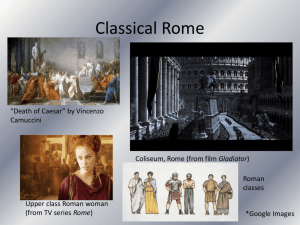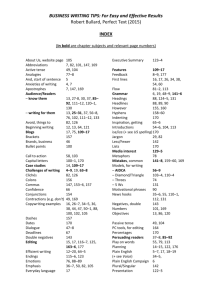hooks-kim
advertisement
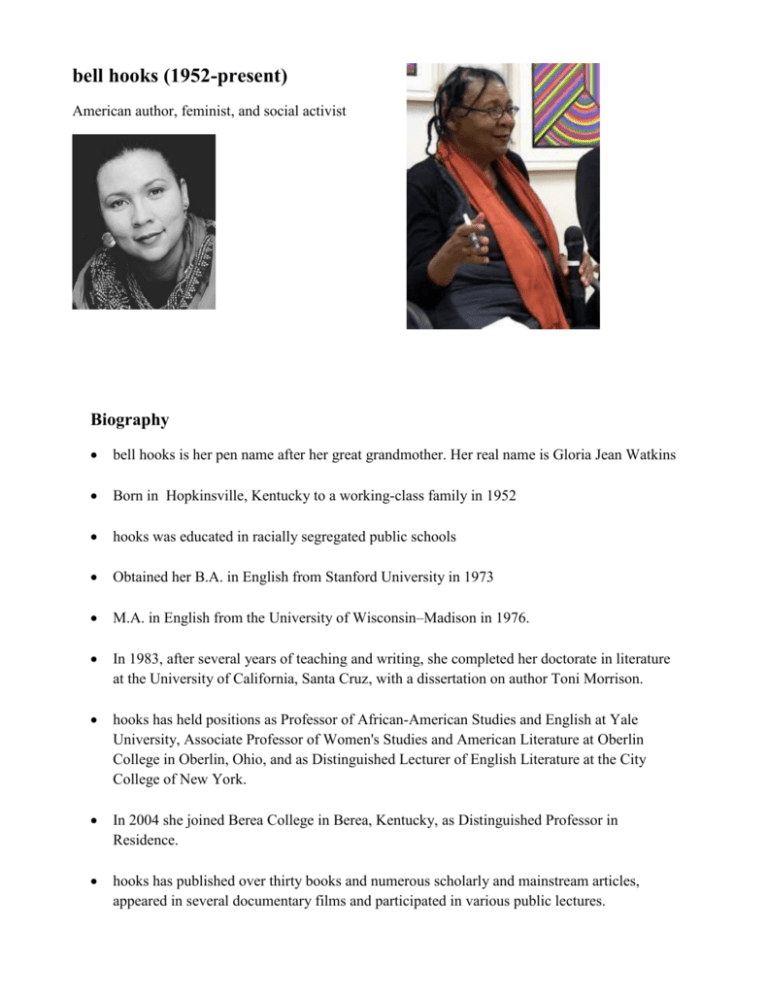
bell hooks (1952-present) American author, feminist, and social activist Biography bell hooks is her pen name after her great grandmother. Her real name is Gloria Jean Watkins Born in Hopkinsville, Kentucky to a working-class family in 1952 hooks was educated in racially segregated public schools Obtained her B.A. in English from Stanford University in 1973 M.A. in English from the University of Wisconsin–Madison in 1976. In 1983, after several years of teaching and writing, she completed her doctorate in literature at the University of California, Santa Cruz, with a dissertation on author Toni Morrison. hooks has held positions as Professor of African-American Studies and English at Yale University, Associate Professor of Women's Studies and American Literature at Oberlin College in Oberlin, Ohio, and as Distinguished Lecturer of English Literature at the City College of New York. In 2004 she joined Berea College in Berea, Kentucky, as Distinguished Professor in Residence. hooks has published over thirty books and numerous scholarly and mainstream articles, appeared in several documentary films and participated in various public lectures. Philosophical Context hooks was Influenced by Sojourner Truth who is a African-American abolitionist and feminist , Brazilian educator Paulo Freire , African-American black nationalist leader Malcolm X, and African-American civil rights leader Martin Luther King, Jr Although hooks is mainly known as a feminist thinker, her writings cover a broad range of topics on gender, race, teaching and the significance of media for contemporary culture. She strongly believes that these topics cannot be dealt with as separately, but must be understood as being interconnectedness. feminism—creating a world free of sexism—is only possible if men and women both believe in and fight for the feminist cause Educational Philosophy Three components of hooks' educational philosophy are (1) education as resistance: teaching and learning as revolutionary acts (2) engaged pedagogy: which sees classrooms as arenas for exploration and mutual participation and which requires knowledge of individual students, different cultural ways of knowing, and self-actualization (3) learning as joy and ecstatic transformation. hooks, like Paulo Freire, sees education as the practice of freedom. Profoundly influenced by Freire, she sees Freire’s work as affirming her "right as a subject in resistance to define reality." (Teaching to Trangress 1994 p53). Implications for teaching In her 1994 book Teaching to Transgress: Education as the Practice of Freedom, hooks investigated the classroom as a source of constraint but also a potential source of liberation. She argued that teachers' use of control and power over students dulls the students' enthusiasm and teaches obedience to authority, confining each pupil to a rote, assembly-line approach to learning. She advocated that universities encourage students and teachers to transgress, and sought ways to use collaboration to make learning more relaxing and exciting. She described teaching as "a catalyst that calls everyone to become more and more engaged". Teaching is a performative act. And it is that aspect of our work that offers the space for change, invention, spontaneous shifts, that can serve as a catalyst drawing out the unique elements in each classroom. Teachers are not performers in the traditional sense of the word in that our work is not meant to be a spectacle. Yet it is meant to serve as a catalyst that calls everyone to become more and more engaged, to become active participants in learning. (Teaching to transgress, 11) Bibliography hooks, bell. Teaching to Transgress: Education as the Practice of Freedom, 1994. New York, NY: Routledge hooks, bell. Teaching Critical Thinking: Practical Wisdom. 2010, New York, NY: Routledge Online resources http://www.education.miami.edu/ep/contemporaryed/bell_hooks/bell_hooks.html http://files.eric.ed.gov/fulltext/ED453342.pdf http://infed.org/mobi/bell-hooks-on-education/
